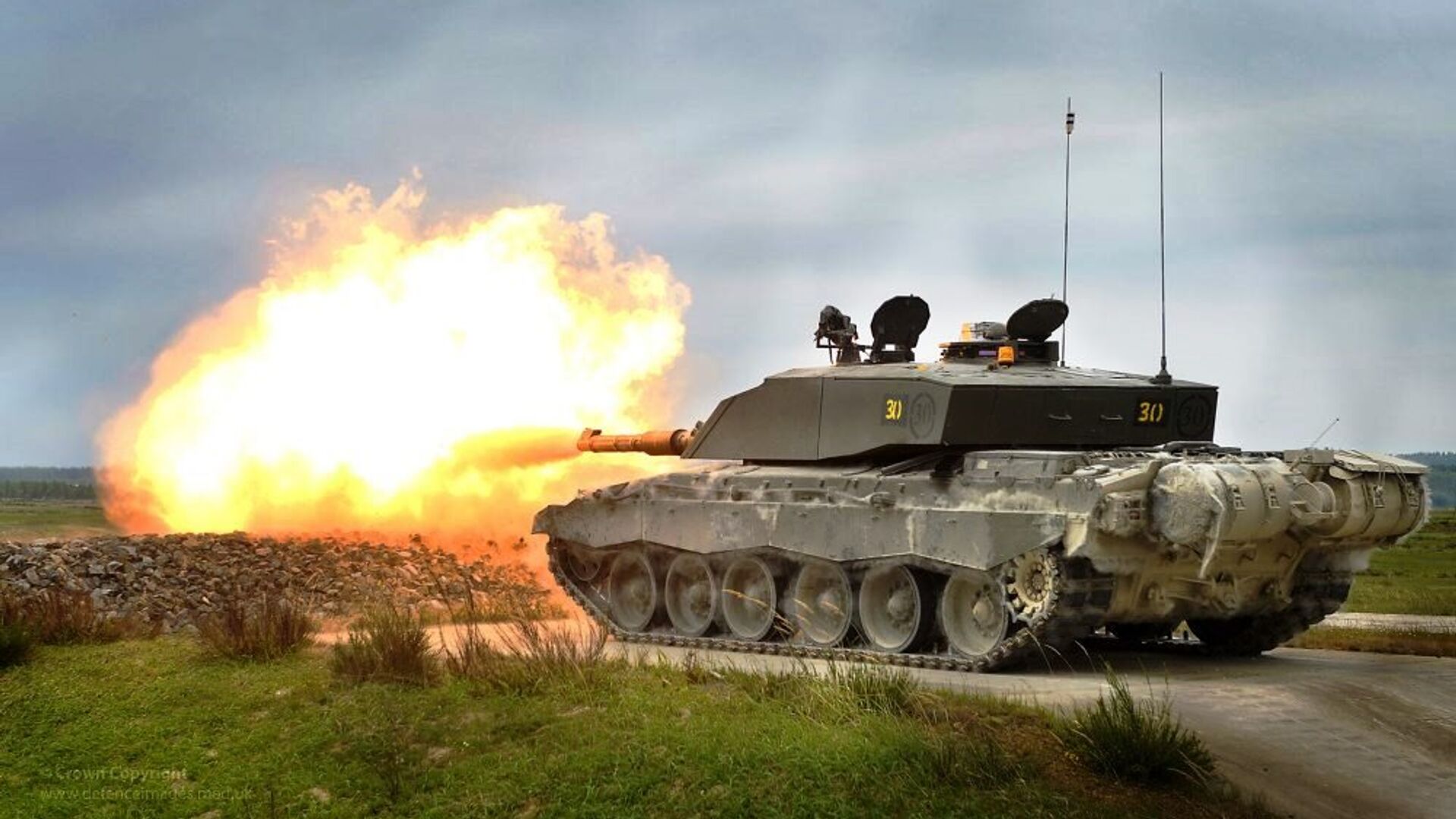The British Defence Ministry has awarded the Anglo-German military vehicle production joint venture Rheinmetall BAE Systems Land an £800 million ($1 billion) contract to supply the Army with 148 upgraded tanks.
The vehicles will be produced at the company’s plant in Telford, Shropshire, however, it would be an upgrade of an existing Challenger 2 main battle tank, rather than production from scratch.
In its recently published integrated defence, security and foreign policy review, the UK confirmed a 35 percent cut in its main tank fleet. The British Army has 227 Challenger 2 tanks at the moment and, under contract, 148 of those ageing machines will be upgraded to the Challenger 3 standard.
The Challenger 3 tank will use the existing chassis, but is planned to be equipped with a new digitised turret, improved sights, upgraded protection, a smoothbore cannon instead of a rifled one and other advances and changes. The digitalisation also means that the tank would be able to share data and information on the battlefield with attack helicopters and other ground vehicles.
Defence Secretary Ben Wallace said that the new technology "allows us to deliver immense warfighting capabilities in battle spaces filled with a range of enemy threats".
The UK government unveiled its long-awaited integrated review of foreign and defence policy in March, which re-examines the UK’s priorities and objectives on defence, security, development, and foreign policy, and defines the country’s place in the world, following its departure from the European Union.
The new defence strategy targeted Russia as the "most acute direct threat" in the 2020s for London, pledging to deter and defend against the "full spectrum of threats" emerging from the country, and also views the fact that China will be the key global economic player in the next decade as a potential threat to its economic security.



